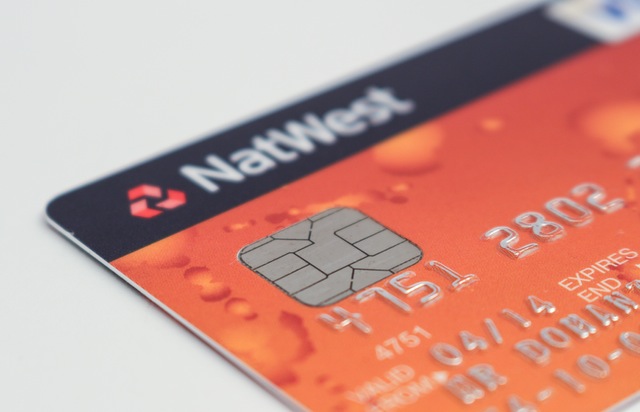
Welcome back for the fourth and final post on our “How and Why You Should Get out of Debt” miniseries. The first part, the intro, was a basic introduction to what we’d talk about during the series. the next post, part 1, First Things First, talked about what needed to be done first if getting out of debt would be a successful venture for you. The third post in the series, part 2, focused on dealing with roadblocks, what to expect and how to overcome them.
Today, we’ll talk about staying the course. IMHO, this step is just as tough as dealing with the hurdles that come with any journey: the roadblocks.
Staying the course is the longest part of the journey, and it’s the part of the journey that’s going to require you to muster all of the stick-to-it-iveness you can find. Why? Two main reasons: boredom and discouragement.
Boredom
As with any goal, whether it’s eating healthier, exercising, starting a business or whatever, paying down debt hits a point where it becomes mundane. Budgeting makes you nauseous. Not spending gets tiring. Revisiting your goals – again – becomes unbearable.
What to do? I mean, let’s face it: once you’ve reached the boredom stage, you’ve likely still got a long way to go. How to handle this?
Remind yourself that this is not a “diet” necessarily, but a “lifestyle change”
If your goals are to pay off debt so you can go back to blowing your money any way you please, yes, this is a diet. But I have to warn you that if this is your goal, you might want to re-think it. If, for instance, the only reason you want to lose 30 pounds is so you can go back to eating fries and cookies every night, the weight isn’t likely to stay off for very long.
Similarly, if the whole point of this journey for you is to be able to waste all of your money on instant gratification stuff, but to do it without having debt hanging over your head, beware: you’ll likely end up right back in debt again.
True financial freedom requires a mindset change: one that leads you to make all decisions (or at least most decisions), from now on and forever more, on a value-based spending system. In other words, you need to have figured out your goals for your income and decided what’s most important to you. Once you have a goal for your money, including some long-term goals (as in “I want to retire in 10 years. During retirement, I want to travel the world.), then it’s easier to get out of the bored stage and into a destination-driven mindset. You always have to have somewhere that you want your money to go, or you’ll go back to wasting it on piddly, unimportant stuff. If you have somewhere for your money to go, you won’t be bored with your journey because you’ll always have a goal for it.
Evaluate what is important to you
Is going to Taco Bell 5 times a week part of your long term plan? If not, then stop wasting the $25 bucks a week on it and re-evaluate what your life’s goals are. That $25 a week can get you a vacation to the Caribbean in a year! Which spending choice is going to provide you with more long-term happiness and/or memories? I’m guessing it’s the vacation, but that’s for you to decide.
Recommended Reading: Your Money or Your Life: 9 Steps to Transforming Your Relationship with Money and Achieving Financial Ind ependence: Revised and Updated for the 21st Century
Discouragement
Part of the journey that, for us, has been really difficult, is seeing the numbers move SO slowly. We’ve got a pretty high debt-to-income ratio right now, so our debt payoff is taking F – O – R – E – V – E – R. We’re not seeing results nearly as quickly as we’d like to, and sometimes it tempts us to throw in the towel. We get super discouraged. Most debt payoff journeys do take a few years, so how can you combat the temptation to give up when the numbers are moving too slowly?
Change Your Expectations
Get it set in your mind that this is a 3 or 5 or 10-year journey, not a six-month journey. Make charts, graphs, record your progress and mark off your accomplishments. For us, our original goal was to get through one year of back-to-basics spending. We’re nearing the half-way point now, and it’s fun to see on our chart that nearly half of the 365 days are colored in.
Track Your Progress
When you get discouraged, go back and look at how far you’ve come. Every dollar less in debt that you have today compared to when you started makes a difference. It really does! Track each month’s debt totals, minimum payments and interest paid. Then encourage yourself by watching the numbers go down every month.
Gain Some Momentum
Sell something. Earn money. Find a way to put an extra $100, $500 or $1,000 towards your debts. This will motivate you and encourage you as you see a big gain toward your goal.
Look for Motivation
Read personal finance blogs and debt payoff success stories. Spend a few minutes dreaming of what your life will be like when you’re debt free. Imagine how it will feel to be able to retire at 50. Do what you need to do to revisit the momentum and excitement that got you started on this journey in the first place.
Friends, you can get out of debt, and you should get out of debt. There are a million reasons why, and not very many reasons why you should continue slaving away to pay big banks your hard-earned money for no good reason. So figure out your list of “whys” and start on your journey to financial independence today.









Excellent points! I got frustrated with people I’d meet who would always be looking for the “next great thing” when it came to getting out of debt. I don’t think success was defined by the quality of your plan as much as it was defined by your ability to stay on it.
I totally agree, Joe!!! It’s not this big WOW, what a great plan thing. It’s the tortoise and the hare kind of a thing.
Sticking with it definitely is the hard part. Reading PF blogs really motivates me to keep trying to do better with my money. I get inspiration by reading from others who have accomplished what I am trying. It gives me motivation to keep going when I want to quit.
It’s the same with me, Alexa. Reading others’ success stories is just like hanging out with like minded people. Dave Ramsey says “If you want to be thin and rich, study the habits of those who are thin and rich”. Same concept. You are what you eat. If you spend time “hanging out” with out of debt/financially successful people, you will start to mimic them. That’s the plain and simple truth, and I’m so glad that you and I have both learned that, for our families’ sakes!
Excellent post, Laurie! I think slow progression is a HUGE de-motivator. We have a high debt-to-income ratio because of student loans and the worst part is at the beginning of the paydown most of the money goes towards interest. It’s obviously depressing to look at how little has been paid down since we started, but I am a big fan of just pushing forward and being happy about making some progress, even if it’s not material. I agree though that putting more towards it can be a big motivator, even if it is a one-time $100 or $500 contribution.
So, you know then, whereof I speak! Yes, it can be tough, but I think that’ll make the celebrations of success all the sweeter. 🙂
Another great post, Laurie. I like the point about changing your mindset and not viewing it as a “diet”. I know I tend to focus on the end goal, but it’s not like the end will be when all debts are gone. It’s just you’ll be able to put any extra money towards something else at that point, there really never is an end. Getting and staying in the frugal mindset is key for when you’re paying off debt and even afterwards.
Right, Jake! It’s important, I think, to have a plan for that debt repayment money after the debt is all gone, so a person doesn’t end up just blowing the cash every month.
Exactly! Tinkering around the edges will get you results that correspond to your effort. It really is a deep commitment to lifestyle changes. Thanks 🙂
SO true, Mario! For us, it’s all about deciding what’s important in life.
I remember when I first got on a diet it was all so great for the first “few” days. Then it hit me, what happens when I stop the diet? Its about long term strategy and being able to keep the course. Same with debt as you mentioned its a life style change. Change your mind set, focus, and stay motivated.
Exactly! It’s almost like you become a different person, whereas with a short term goal like a diet, you just pretend to be a different person for a little while.
Love these points! I completely agree that it takes a shift in mindset, and it is a lifestyle change. You have to want that long-term financial stability that being debt-free brings you, and have the self-control not to revert back to your previous ways. At the end of the journey, hopefully the feeling of being financially free to do what you want with your money is more than enough!
Yes! That’s exactly what I’m getting at. I would imagine it’s like any other addiction, so to speak – you don’t want to revert back to the former life of, in this case, spending without knowing where your money is going. Thanks, E.M.!
Great post, Laurie and a wonderful series overall! It is a lifestyle change and it does take time to eliminate debt, unfortunately. It’s hard to remain patient when the numbers aren’t moving as fast as you’d like, but the important thing is those numbers are moving in the right direction!
Right, Shannon! The focus has to be on the success, no matter how little that success may be!
I’m a very impatient person by nature and I can completely relate to it taking F O R E V E R to pay off my massive debt but this just motivates me to work harder. Great post Laurie!
Glad to help, GMD! You know we’re in a similar situation with massive debt. One day, girl, one day!
I like the diet analogy, you need to change the habit otherwise you’ll always splurge as soon as you get a little breathing room and go back to broke.
Exactly! That is one of our biggest fears for after we reach debt free, but I know that with each passing day of sticking to value-based spending decisions we’re reinforcing good choices and a healthy spending/saving lifestyle.
Great points Laurie! I love the juxtaposition between a lifestyle change and a diet. You’re absolutely right that it can’t be a temporary fix. It has to be done with a real understanding of long-term values, or else A) you’re likely to fail, and b) like you say, even if you succeed you’ll likely fall right back into the same old problems.
Also, I think the desire for quick fixes, whether it’s with debt payoff, investing, relationships or whatever, is what gets people into a lot of trouble. Rarely does anything important come easily or quickly. Patience and persistence are your biggest allies.
SO true, Matt! I totally agree about the short term fix too – it never truly works
I remember how hard it was to stay the course when paying down my debt. I hated it, but that is why I started celebrating little victories or milestones. It kept me motivated and gave me the emotional boost that I needed.
Yes, we’ve definitely got some celebrations planned, Grayson. It’s what helps to keep us going. 🙂